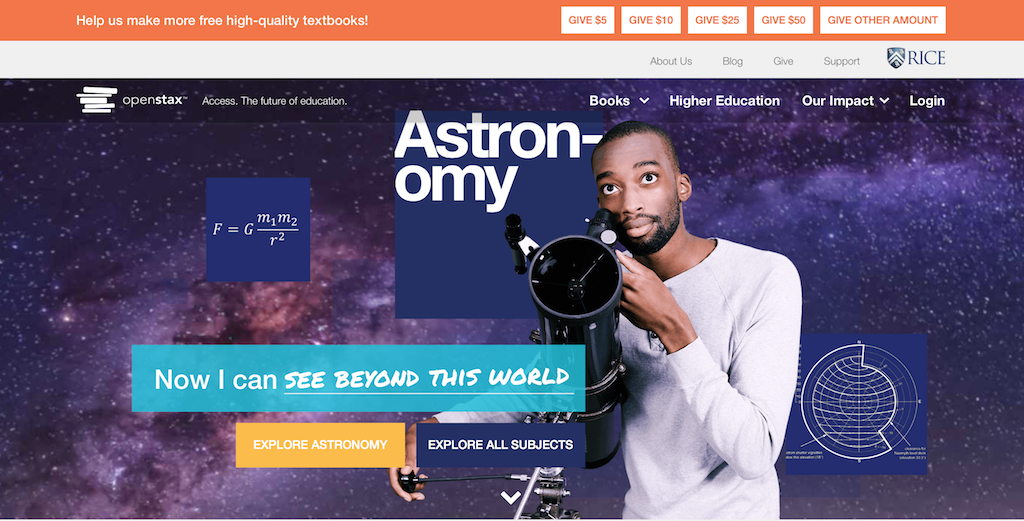Students split on textbooks
Websites such as Openstax.org offer students free e-books in a variety of academic subjects.
May 1, 2017
AACC students said they like the convenience of e-textbooks, but many still prefer paper to screens.
In an informal poll of 20 students on campus in April, 10 said they prefer textbooks in digital format, while the other half said e-books are harder to learn from.
E-books—short for “electronic books”—are digital books most often read on a computer screen or with an e-book reader app on a phone or tablet.
“I’m 100 percent on board for e-textbooks,” said Antonio Vega, a second-year transfer studies student. “They’re the exact same thing as regular textbooks, but I can access it from anywhere, so it’s really convenient.”
Marquis Tumpkin, a first-year nursing student, also said she prefers the convenience of digital books. “I wish all my books were on my phone,” she said.
Other students who prefer e-books said they are easier to search, usually cheaper and sometimes have interesting interactive elements. And they cited weight and environmental impact as downsides to physical books.
On the other hand, many students said they learn more from physical textbooks.
Dr. Donald Orso, a psychology professor, said students benefit from e-books.
“For the students, [a benefit is] they don’t have to lug around a textbook,” he said.
In a nationwide survey of 1,200 undergraduates by Student Monitor in spring 2017, 47 percent of students said they “prefer the feel of paper and seeing physical progress through the material.” Twenty-three percent said they prefer to study with an e-textbook.
“I find the computer is very distracting and I tend to, like, not get school done if I’m working on my computer,” said Will Deibert, a first-year AACC engineering transfer major. “I’d much rather spend the extra money and get a hard copy than go digital.”
Some students said they like marking up or using sticky notes in their physical books. Others complained e-books are harder to flip through quickly, or that reading for long periods on a screen hurts their eyes. But others were less specific.
“I just learn better with the textbook in my hand,” said Jayden Johnson, a first-year early childhood education major.
“I like to be able to, like, hold it in my hands,” agreed Kristin Zevely, an elementary education sophomore.
Most students agreed e-textbooks are easier on the wallet, but Juan Cesar, an electrical engineering sophomore, had a different take: “If the book is expensive, I will get [a hard copy].” The reason, he said, is e-books are non-refundable.












